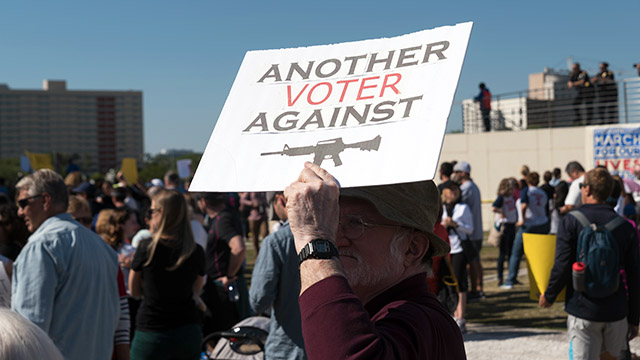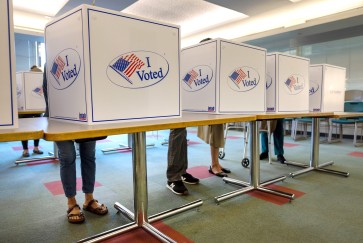A federal assault weapon ban was highly effective in reducing public mass shootings, reports a new Northwestern Medicine study just published in a pre-print.
The study found the Federal Assault Weapons Ban (FAWB) — that included a ban on large capacity magazines (limiting the number and caliber of bullets) — from 1994 to 2004 — resulted in a significant decrease in public mass shootings, number of gun deaths and number of gun injuries.
The study leveraged the passage and expiration of the FAWB to estimate the number of mass shootings that were prevented during the ban, as well as the number of shootings that would have been prevented had the ban remained in place.
The study authors estimate the ban prevented 10 public mass shootings during the decade it was in place, before it was allowed to expire. FAWB would have prevented 30 public mass shootings that killed 339 people and injured an additional 1,139 people, the authors said.
The political climate at the time the FAWB was passed required a sunset clause in order to get the bill passed.
The study was published in a pre-print and is considered preliminary until accepted by a journal.
“As society searches for effective policies to prevent the next mass shooting, we must consider the overwhelming evidence that bans on assault weapons and/or large capacity magazines work,” said lead author Lori Post, director of the Buehler Center for Health Policy and Economics at Northwestern University Feinberg School of Medicine.
Previous studies on FAWB only evaluated if it resulted in fewer gun deaths and injuries.
The Northwestern study is the first to look at the impact of the gun control policy on the number of mass shooting events, not number of people killed or injured. It also is the first to measure how many mass shootings were prevented when the FAWB was in place, as well as how many could have been prevented if the legislation was never sun setted.
“It does not result in fewer other types of gun deaths and injuries, such as domestic homicides. You only need one bullet to commit suicide, kill your wife or kill somebody else. But when you are just looking at mass shootings, it is super effective,” Post said.
Access to assault weapons, which have rapid fire capacity and gun cartridges that hold lots of bullets, are directly related to mass shootings.
“The purchase of the assault weapon is often the final step in the preparation and execution of a mass shooting,” Post said. “The shooter from Colorado bought his assault weapon and ammunition one week before the mass shooting.”
Every year, 50,000 people die from a gun injury, however, less than 1% of the cases are mass shootings, defined as four or more fatalities in a single setting in a public space. But mass shootings have a tremendous toll on American mental health. Other studies have found significant associations between mass shootings and child anxiety, with particularly high anxiety levels close to the mass shooting event. Other studies have found that nearly one-third of adults avoid certain public places due to mass shootings.
Now that the election and COVID-19 are receding from the news cycle, Post expects more mass shootings to occur.
“The previous news cycles sucked the oxygen out of mass shooters as they are looking to be newsworthy, Post said. “Now there is room on the national agenda for mass shooters.”
The study demonstrates the utility of public health surveillance on gun violence. Surveillance informs policy on whether a ban on assault weapons and high-capacity magazines reduces public mass shootings.
Public mass shootings are a significant public health problem that require ongoing systematic surveillance to test and inform policies that combat gun injuries. While there is widespread agreement that something needs to be done to stop public mass shootings, exactly which policies that entails varies, such as the prohibition of assault weapons and large capacity magazines, are still being debated.
Next Post and colleagues plan to explore the mental health of shooters. Most shooters are pegged as mentally ill when in reality mass shootings require lots of planning, premeditation, forethought and fantasizing when we can clearly identify antisocial behavior such as narcissism and psychopathy. These are personality disorders, not mental illness, she said.
Maryann Mason, an associate professor of emergency medicine at Feinberg, is a co-author of the paper.


